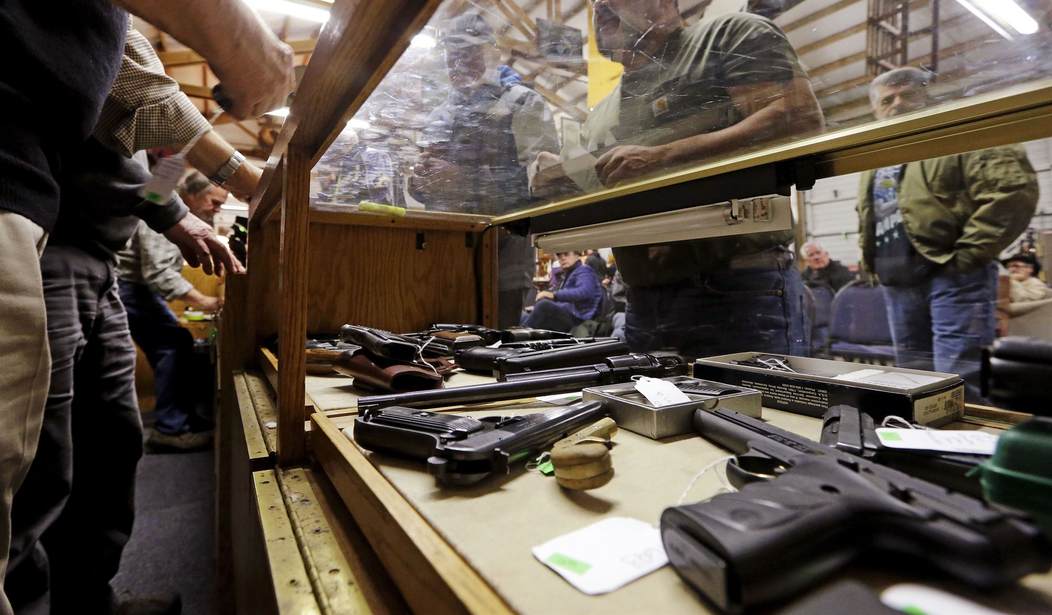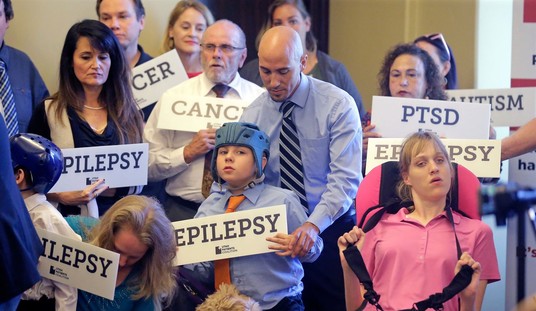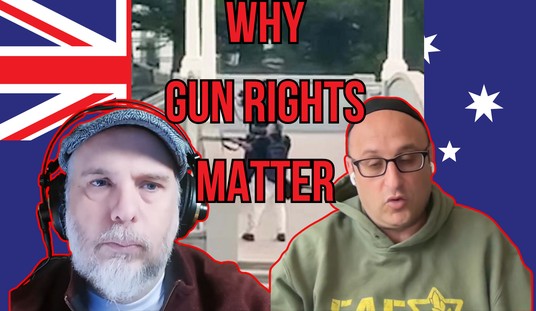When looking at the Bill of Rights, it becomes clear that the Second Amendment is pretty important. After all, it’s second in the list of amendments. Additionally, the First Amendment preserves a number of specific rights, whereas the Second is focused on a single right. That suggests some importance for that particular right.
For many of us, we’ve referred to as the insurance policy on the Bill of Rights. After all, your right to protest or worship as you see fit can be snatched away by any government willing to ignore words on a piece of paper. Having the right to keep and bear arms means a potentially tyrannical government will have to account for a populace that is both armed and outnumbers them.
But some have managed to take this relatively simple concept and make it complicated.
That’s at play in a recent editorial that appeared in several newspapers, but appears to have originated from the L.A. Times:
The Second Amendment to the U.S. Constitution is a mess, a muddle, a grammatically challenged pair of clauses that allows two or more readers to insist that it says two starkly different things, both of which are of life-or-death importance and each of which can be only partially defended.
To some, it is foremost the militia amendment, plainly referring to “the people” as a collective entity and embodying a young, rebellious nation’s mistrust of professional standing armies in favor of armed citizens banding together at times of crisis.
Yet to others, it is primarily the gun-rights clause, safeguarding an individual’s right to keep and bear arms, notwithstanding the clear references to “the security of a free state” and the lack of any mention of individual rights.
The drafters of the Bill of Rights were learned men who knew how to write, so there must have been some reason for them to submit these oddly assembled 27 words that give us such trouble today. They most likely disagreed over the place of firearms in American society. Was their primary and most contentious purpose to defend the nation (against foreign invaders, but perhaps also against the abuses of their own government)? Or was it for shooting squirrels for the dinner table (and defending against slave revolts and Indian uprisings)?
I’m going to give the writer credit. For once, they at least acknowledge that we have an argument at least as equally valid as the gun control crowd’s.
Usually, they simply pretend we’re making stuff up.
However, I have to point out that the Second Amendment really isn’t that difficult to understand.
Let’s start by addressing the militia clause for a moment. “A well regulated militia being necessary to the security of a free state,” is an introductory clause, but it doesn’t actually carry much weight grammatically. You can purge it from the sentence and it still makes sense. Trust me, I use way too many introductory clauses in my own writing. I’m well versed in what they are.
But even if it’s not, the claim that “the people” refers to a collective group should be problematic for each and every person in this country, even if you don’t like guns.
After all, “the people” are referred to multiple times in the Bill of Rights. At no other point does it seem to refer to a collective right except with regard to the right to keep and bear arms. Now, why would the Founding Fathers write it that way?
Oh, and it’s highly unlikely that our Founding Fathers disagreed over the place of firearms in American society. These aren’t the vanguard of an ancient civilization lost to time. Their writings still exist, preserved by a society that recognized the importance of their words. We have many comments about preserving the right to gun ownership. We also have stories of these same men carrying firearms with them as they passed through the city.
What we don’t have, though, are any references to them believing that the right to gun ownership should be limited.
I mean, the Constitution gives Congress the power to issue letters of marque, empowering privateers to hunt the shipping of our nation’s enemies. That at least suggests that the private ownership of artillery was on the table. If they were unwilling to restrict cannons, then why should we believe they were accepting of any other restriction.
The fact is that there’s no evidence to suggest our Founding Fathers struggled with the role of guns in our society. Quite the contrary, actually, they not only accepted them but felt that they were a necessity for maintaining a free society.
The editorial goes on later to argue:
In some parts of the country, people still do use guns to put food on the table, for sport or simply as an attribute of their lifestyle. Gun-toting behavior that would be natural and acceptable in, say, rural Pennsylvania, would be menacing and is wisely prohibited in downtown Los Angeles. For now. In issuing a ruling in the case currently before it, the Supreme Court may well strike down not merely New York’s permit requirements but also California’s, and those of the six other states that reserve the right to grant or deny permits based on the applicant’s reason for wanting one.
States have long made their own decisions about how to balance residents’ safety with their gun rights, based on the values expressed by voters at the polls and their representatives in the legislature.
This, of course, is in reference to the case before the Supreme Court, as is most of the editorial. The editorial board responsible for this one argues that these restrictions are good and necessary.
However, as I’ve already illustrated and as the courts have found, the right to keep and bear arms is an individual right. That means restricting people from exercising that right based on a subjective interpretation of need is an infringement of that right. You can’t argue otherwise without simply pretending the right doesn’t exist.
The truth is, the Second Amendment isn’t that complicated.








Join the conversation as a VIP Member